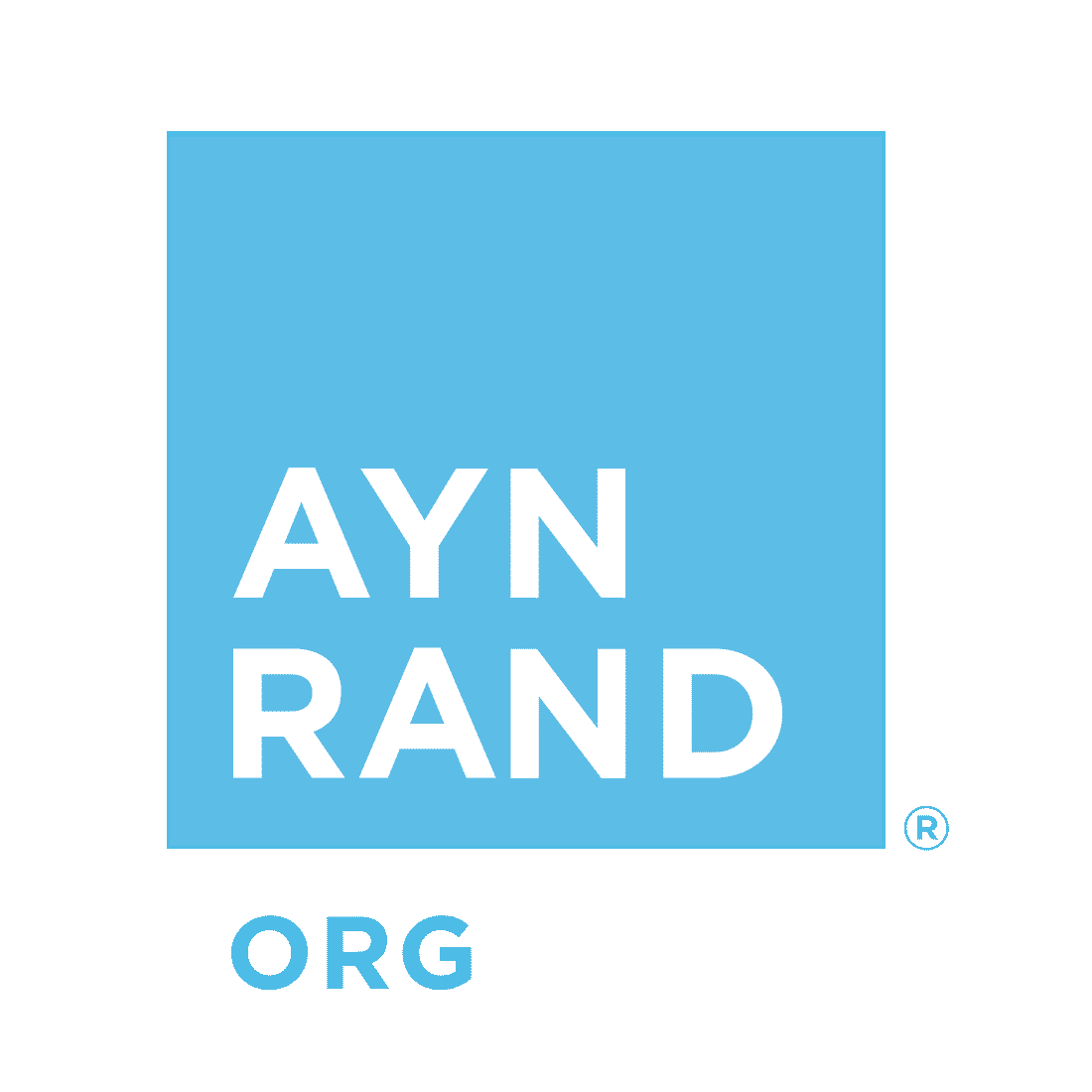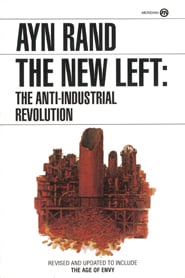

The ’60s are usually glorified as a time when America’s youth stood up in rebellion against the cultural establishment. Protesting everything from Vietnam to industrial capitalism, college students under the banner of the New Left forcibly occupied campus buildings and idolized Ho Chi Minh and Fidel Castro — and were hailed as idealistic revolutionaries.
Ayn Rand viewed them very differently.
In a number of essays, she analyzes the campus protests and the ideology of the New Left, concluding that far from rebelling, they were slavishly following every basic idea of their teachers — and that far from being idealistic, they were attacking the key foundations of a rational, free society.
Rand’s writings on these and related topics were collected in The New Left: The Anti-Industrial Revolution(1971). A 1999 edition, Return of the Primitive, added supplementary articles, including three by editor Peter Schwartz analyzing the New Left’s enduring legacy.
Confronted by an important idea, event or movement, Ayn Rand always sought to identify its causes and effects: What gave rise to this and to what will it lead?
The essays in Return of the Primitive collect Rand’s observations of the ’60s student movement, asking, among other questions: What is the meaning of the campus protests? What ideas led to the shift from the Old Left to the New? Is there a connection between the Progressive educational system (preschool through college) and this generation of students?
Rand also looks critically at the nascent environmentalist movement, which she saw as fomenting an “anti-industrial revolution,” and analyzes what she sees as the dominant emotional leitmotif of this era, which she calls “the Age of Envy.”
The essays by Peter Schwartz confirm that the timeless lessons of Rand’s analyses — especially those concerning environmentalism, multiculturalism and feminism — have been borne out by developments through the ’80s and ’90s. Her insights are as relevant today as they were four decades ago.
“There was a time when the necessity of industrialization was the crusading slogan of Western liberals, which justified anything and whitewashed any atrocity, including the wholesale slaughter in Soviet Russia. We do not hear that slogan any longer. Confronted with the choice of an industrial civilization or collectivism, it is an industrial civilization that the liberals discarded. Confronted with the choice of technology or dictatorship, it is technology that they discarded. Confronted with the choice of reason or whims, it is reason that they discarded.
“And so today we see the spectacle of old Marxists blessing, aiding and abetting the young hoodlums (who are their products and heirs) who proclaim the superiority of feelings over reason, of faith over knowledge . . . of spiritual concerns over material comforts, of primitive nature over technology . . . .
“The old-line Marxists used to claim that a single modern factory could produce enough shoes to provide for the whole population of the world and that nothing but capitalism prevented it.
“When they discovered the facts of reality involved, they declared that going barefoot was superior to wearing shoes.”
— Ayn Rand, “The Left: Old and New,” Return of the Primitive
Ayn Rand witnessed the rise of the ’60s “ecology” movement (the forerunner of today’s environmentalism) and found much that was objectionable. She observed its antagonism toward industry, toward business, toward the application of technological solutions to material problems. She saw a new viewpoint emerging that vilified industrial development under capitalism as a threat to mankind.
This is tantamount to a rejection of the Industrial Revolution, which means a rejection of history’s greatest positive transformation in the length and quality of human life. The ecology movement, she argued, was ultimately calling for an “anti-industrial revolution” and seemed eager to condemn mankind to the squalor and misery of pre-industrial subsistence.
While environmentalism has evolved a great deal since the late ’60s, the ideological essence of the movement — its philosophical perspective on man’s relationship to nature — has not changed. Rand’s critique is as pertinent today as it was then.
In the ’60s campus protests, the issue of freedom of speech arose repeatedly. Protesters asserted an unrestricted “right” to demonstrate on campus and to occupy campus administration buildings. The Berkeley “free speech movement” was demanding, in the name of free speech, the “right” to violate a university policy forbidding political activity on campus.
In Ayn Rand’s view, these demands represented a fundamental confusion about the meaning of the right to free speech. “There can be no such thing as the right to an unrestricted freedom of speech (or of action) on someone else’s property. The fact that the university at Berkeley is owned by the state, merely complicates the issue, but does not alter it.” Indeed, what the chaos of the protests actually highlighted is that “no rights of any kind can be practiced without property rights.”
Ayn Rand is a philosopher interested in real-world issues. She understands that the abstract, technical problems in epistemology, the theory of knowledge — how we acquire and validate knowledge, how we can discover truth and avoid falsehood — have life-or-death consequences, and she was interested in identifying the impact of these issues on such fields as education.
Rand was deeply concerned about America’s educational system and the harmful influence of modern philosophy on the methods actually employed in the classroom. A supporter of Montessori education for young children, she was deeply critical of the Progressive school of education founded by philosopher John Dewey. In her view, the college protesters running riot in the ’60s were the inevitable products of Dewey’s pedagogical system.
Return of the Primitive includes Rand’s most comprehensive discussion of education: her article “The Comprachicos.”
In one of Ayn Rand’s most fascinating cultural commentaries, “Apollo and Dionysus,” she examines two historic events from 1969: the Woodstock music festival and the launch of Apollo 11 to the moon. From salient facts about these two events, and the culture’s response, Rand draws implications applicable not just to ’60s hippies, but to any individual in any era.
In her analysis, these two events expressed and dramatized an issue of profound philosophic importance: the alleged conflict between reason and emotion. “It is not true,” writes Rand, “that reason and emotion are irreconcilable antagonists or that emotions are a wild, unknowable, ineffable element in men. But that is what emotions become for those who do not care to know what they feel, and who attempt to subordinate reason to their emotions.”
As a cultural commentator, Ayn Rand is not primarily interested in denunciation, though she found much to denounce in the ideas and events dominating America at the time. Much more important to her is the projection of a positive ideal, the elaboration of her philosophy, Objectivism, as the alternative we should embrace.
In Rand’s view, the fundamental antidote to the emotionalism and irrationalism of the hippy, student “rebels” of the New Left is a proper understanding of reason. This is what she set out to accomplish.
“I am not primarily an advocate of capitalism,” she writes, “but of egoism; and I am not primarily an advocate of egoism, but of reason. If one recognizes the supremacy of reason and applies it consistently, all the rest follows. This — the supremacy of reason — was, is and will be the primary concern of my work, and the essence of Objectivism.”